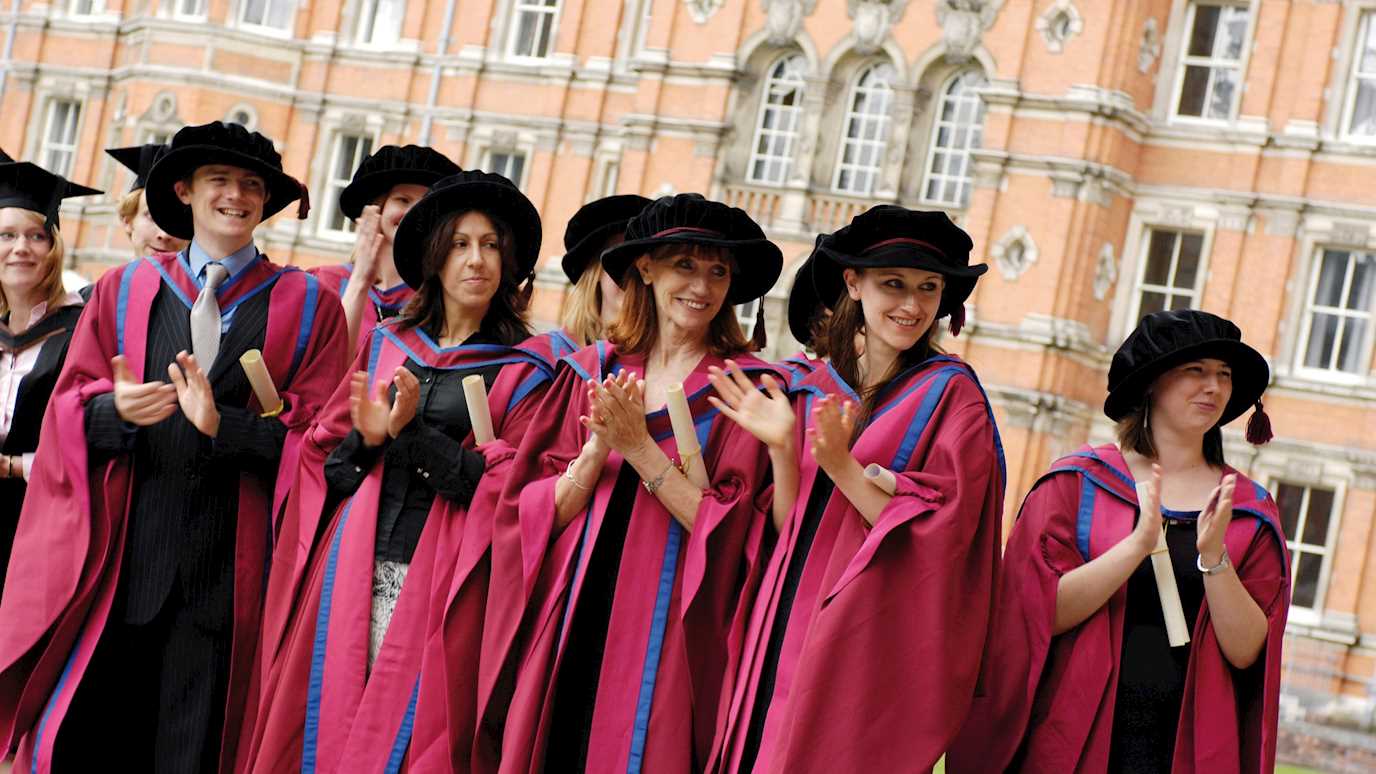Key information
Duration: 4 years full time
Institution code: R72
Campus: Egham
UK fees*: £4,786
International/EU fees**: £26,300
About us
The innovative and exciting new Department of Electronic Engineering links excellent engineering with the ingenious application of creativity as the starting point for invention. We offer opportunities for cutting-edge research in fields including Microwave Photonics and Sensors, Nanotechnology, Voice, Music and Biosignal technologies, and Power systems.
The Department offers a range of postgraduate study opportunities around current and emerging electronic engineering trends. Research within the Department is structured into four main groups:
Microwave Photonics and Sensor Group
Audio, Biosignals and Machine Learning
At the start of each programme, there will be introductory activities on research skills, giving presentations, writing reports and laboratory safety.
Research facilities and environment
As Royal Holloway’s newest department, we have designed a brand new building right in the heart of campus, with ample space to grow teaching and research around our strengths, using state of the art commercial software, experimental and laboratories equipment.
Our research groups provide a lively and interactive environment for postgraduates and academic staff. Research group members, and other researchers across other departments and industry, meet frequently and hold research seminars or invite internal and external speakers to present to our students. These groups also serve as a useful forum for discussing current research activities, formulating ideas, sharing resources, discussing journal articles and problem solving. Students are expected to become active members of their relevant research group and to participate in wider Departmental events such as seminars and colloquia.
Students discuss their research skills training needs with their supervisor soon after they start their degree. The College's Researcher Development Programme offers a series of transferable skills courses designed for research students to help them to develop their skills alongside their research.
Students on our Research programmes are able to attend any of the 3rd or 4th year modules taught within the Department’s MEng programme as desired to support their research.
Assessment
PhD/MPhil. Topics linked to one of the Department’s research groups under the supervision of a specialist in their research field.
Must be something within the PhD that can be deemed as novel. Demonstrated by reviewing the research literature during the first 9 months to establish a specific area of interest where there is scope for moving knowledge forward. Some way of exploring that area is formally established, usually through experimentation. Writing of the thesis usually starts during the last 3-6 months of year three.
There is no expectation of ‘novelty’ for the MPhil. This degree is based around excellent research that furthers knowledge. Demonstrated by reviewing the research literature mainly during the first 6 months to establish a specific area of interest where there is scope for moving knowledge forward. Then some way of exploring that area formally is established, usually through experimentation. Writing of the thesis generally starts during the last 3-6 months of year two.
MSc by Research. A topic that fits well within one of the Department’s research groups. No formal taught modules, this degree is assessed on the research work itself. Regular supervisions underpin research with opportunities to present progress on research at internal Research Seminars.
Entry requirements
Applicants should ideally hold or be predicted to achieve, an undergraduate degree or equivalent in Science/Engineering (minimum requirement: 2.1). An MSc in relevant disciplines is desirable but not essential. Where English is not the applicant’s first language - IELTS: 6.5 overall. Writing 7.0. No other subscore lower than 5.5. or equivalent.
English language requirements
All teaching at Royal Holloway is in English. You will therefore need to have good enough written and spoken English to cope with your studies right from the start.
The scores we require
- IELTS: 6.5 overall. Writing 7.0. No other subscore lower than 5.5.
- Pearson Test of English: 61 overall. Writing 69. No other subscore lower than 51.
- Trinity College London Integrated Skills in English (ISE): ISE III.
- Cambridge English: Advanced (CAE) grade C.
- TOEFL ib: 88 overall, with Reading 18 Listening 17 Speaking 20 Writing 26.
Country-specific requirements
For more information about country-specific entry requirements for your country please see here.
Your future career
Students graduating from these research programmes will have great opportunities to work in world leading engineering sectors such as Electronics, Photonics, Telecoms, Music Technology, Nanotechnology, Computer Systems Engineering, Biomedicine etc. Our Department will provide a range of expert support and information to our research graduates to acquire a head start in the graduate job market.
Fees & funding
Home (UK) students tuition fee per year*: £4,786
EU and international students tuition fee per year**: £26,300
Other essential costs***: -
…How do I pay for it? Find out more about funding options, including loans, grants, scholarships and bursaries.
* and ** These tuition fees apply to students enrolled on a full-time basis in the academic year 2024/25.
* Please note that for research courses, we adopt the minimum fee level recommended by the UK Research Councils for the Home tuition fee. Each year, the fee level is adjusted in line with inflation (currently, the measure used is the Treasury GDP deflator). Fees displayed here are therefore subject to change and are usually confirmed in the spring of the year of entry. For more information on the Research Council Indicative Fee please see the UKRI website.
** This figure is the fee for EU and international students starting a degree in the academic year 2024/25.
Royal Holloway reserves the right to increase all postgraduate tuition fees annually, based on the UK’s Retail Price Index (RPI). Please therefore be aware that tuition fees can rise during your degree (if longer than one year’s duration), and that this also means that the overall cost of studying the course part-time will be slightly higher than studying it full-time in one year. For further information, please see our terms and conditions.
*** These estimated costs relate to studying this particular degree at Royal Holloway during the 2024/25 academic year and are included as a guide. Costs, such as accommodation, food, books and other learning materials and printing, have not been included.






















